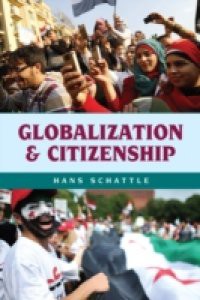This lively and invigorating book explores the complex ways that globalization has profoundly affected the once-static nationally defined boundaries of citizenship. From Cairo to Beijing, campaigns for civil rights and democracy around the world are intensifying and speeding up in the digital media age, and public recognition of global interdependence continues to rise. At the same time, many national governments are tightening border controls and further limiting access to citizenship in a climate of high public anxiety and economic uncertainty. Hans Schattle explores the roles of numerous social movements and advocacy groups at the heart of recent events such as the ';Arab Spring' revolutions, the global contestation on the role and tactics of WikiLeaks, the controversy over the 2010 Nobel Peace Prize award to Chinese political dissident Liu Xiaobo, and the heated debates on immigration and multiculturalism in Europe and the United States. Although globalization continues to open up many new opportunities for citizens to enter the international arena and make their voices heard, as Schattle shows, the institution of national citizenship remains highly resilient.

